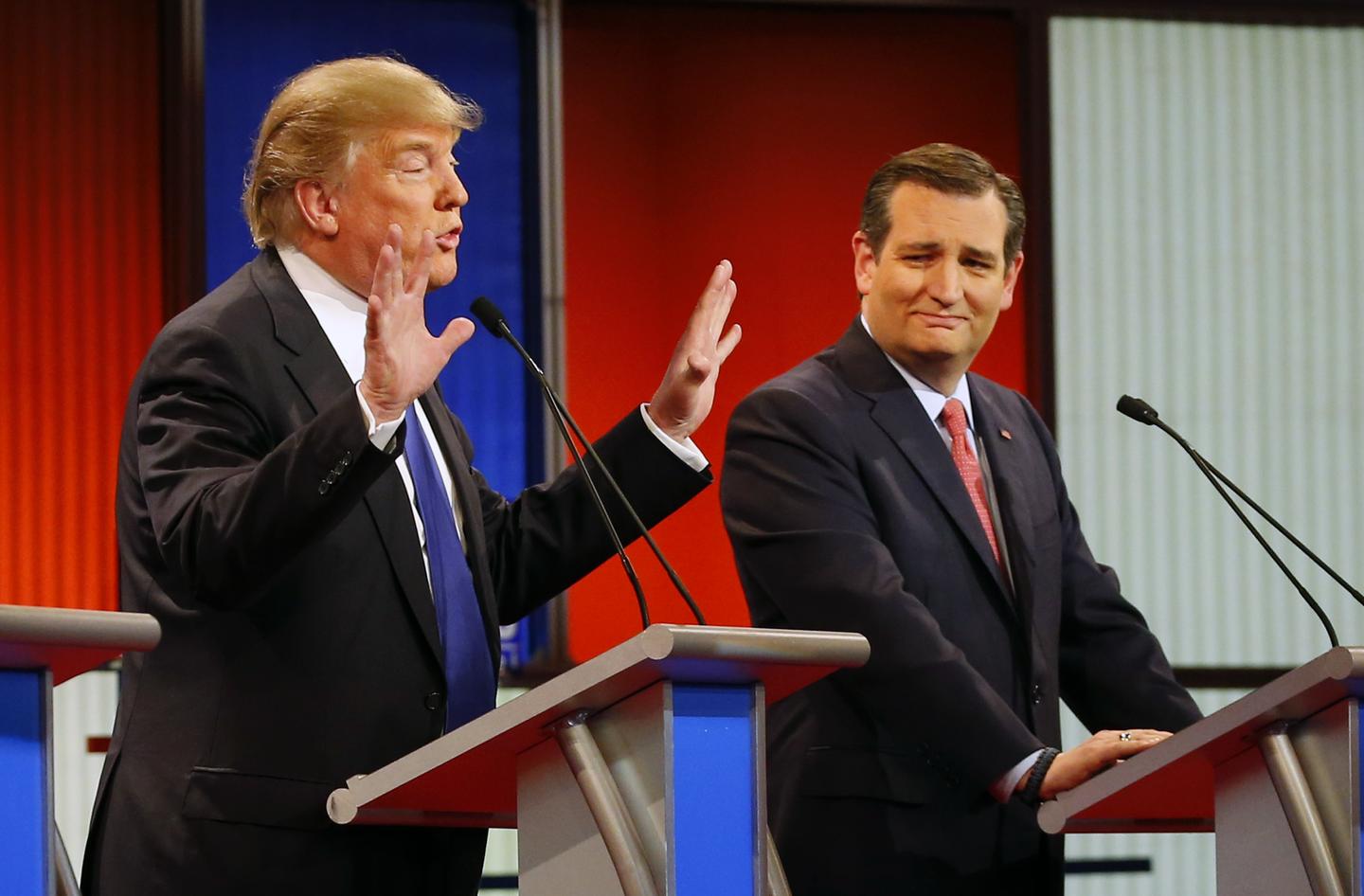Cruz, Kasich Walk Back Vows to Support Trump as Nominee

Early in the presidential primary process, the Republican candidates each signed a pledge that they would support their party’s eventual nominee.
It was designed to rein in Donald Trump, who was threatening a third party bid. But now, as it looks increasingly likely that the nominee will in fact be Trump, the remaining candidates are beginning to waver in their promised support as they grapple with personal misgivings and mounting pressure to disavow the celebrity businessman outright.
“We’re going to look at it every single day, and we’ll see what happens,” Ohio Gov. John Kasich said Sunday on NBC’s “Meet The Press.” “We’ve got a long way to go.”
Last week, as Sen. Ted Cruz attacked Trump as a “sniveling coward” for attacks on his wife, he was less emphatic when asked whether he could support Trump in a general election.
"Donald Trump will not be the nominee,” Cruz said simply.
It wasn’t a “no,” but it wasn’t a “yes,” either. It marked a notable departure from Cruz’s remarks just two weeks ago, when he assured reporters he still planned to back the party’s nominee. Period.
“I committed at the outset. I will support the Republican nominee, whoever it is,” Cruz said at the time.
When the idea of Trump winning the nomination was more abstract, that sort of canned response was the norm for Republican candidates and lawmakers, who predicted without hesitation they would “support the nominee.” Few imagined that Trump could emerge as the party’s standard-bearer, even until quite recently.
Since then, a “never Trump” movement has gained steam among a sizable segment of the GOP, with no less than the party’s most recent nominee for president, Mitt Romney, lining up behind it.
"I'm going to be voting, but I'll vote for someone on the ballot that I think is a real conservative and who will make us proud, and I may write in a name if I can't find such a person," Romney said earlier this month on “Meet The Press,” confirming he would not support Trump in the general election.
Hoping to take Trump down before he locks up the nomination, Romney has lent his support first to all of the candidates except Trump, and more recently to Cruz exclusively, who Romney believes now has the best chance of racking up delegates against Trump.
Romney isn’t alone. Republican elected officials including Nebraska Sen. Ben Sasse and Florida Rep. Carlos Curbelo have become vocal anti-Trump advocates; both have pledged to withhold their support if he is the nominee.
Former New Jersey Gov. Christine Todd Whitman this month went so far as to say she would prefer Hillary Clinton or President Obama “over the kind of damage that I think that Donald Trump could do to this country, to its reputation, to the people of this country.”
Still, for many Republicans, including Kasich and Cruz, the question of whether to support Trump as the nominee is a vexing, unfamiliar puzzle that puts tradition and party loyalty at odds with strongly held beliefs about the qualities that define the GOP.
Utah Sen. Mike Lee told Wisconsin radio host Charlie Sykes on Monday that he has not decided whether he would support Trump in the general election “because there are too many unanswered questions.”
“I would need to know where he stands on a lot of the issues,” Lee said, including “federalism, separation of powers, the fundamental purpose of government, how he reads the enumerated powers of the federal government.”
“I haven’t heard a whole lot of detail,” Lee added. “In fact, I haven’t heard any detail from Donald Trump when it comes to any of those questions.”
Sen. Lindsey Graham was initially among those Republicans who said he would support the party’s nominee, but he has since changed his tone, citing concerns that Trump would incinerate the fabric of the GOP.
“If Trump is the standard-bearer, it’s not about 2016,” Graham said recently on MSNBC’s “Morning Joe.” “It’s about losing the heart and soul of the conservative movement.”
Политика конфиденциальности | Правила пользования сайтом









